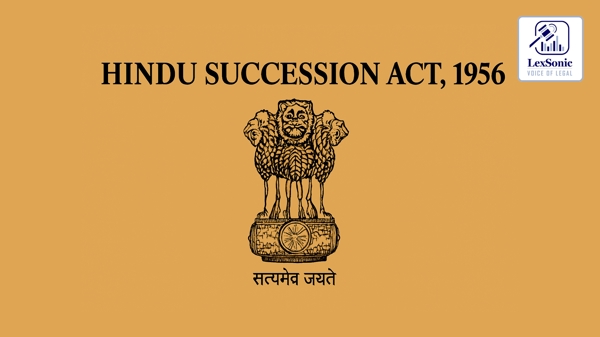Legal Heir's Claim and the Eligibility for Impleadment in Testamentary Proceedings.
29 August 2024
Hindu Succession Act >> Inheritance
In a recent legal matter Jagjivandas Shamji Suchak, since deceased, through his legal heirs Nileshbhai Chandrachantbhai Suchak v/s Induben Jethalal Nagrecha, an applicant sought to be added as a respondent in a petition for Letters of Administration concerning the estate of the deceased Jagjivandas Shamji Suchak. The applicant's claim centers on being a legal heir, arguing for the necessity of citation service in accordance with a previous court order dated October 23, 2023. This order had directed that citation be served on non-consenting legal heirs of the deceased.
The petitioner, Induben Jethalal Nagrecha, had filed a petition (TP No.3788 of 2022) seeking Letters of Administration for the estate of Jagjivandas Shamji Suchak, who died intestate on May 1, 2021, in Mumbai. According to the petitioner, the deceased's estate should be distributed among the Class II heirs listed in the petition. These heirs include the petitioner herself, as she is the daughter of Purshotam Suchak, a predeceased brother of the deceased.

The applicant, however, argues that the petitioner has not disclosed important facts, particularly that the applicant is already recognized as a legal representative in a separate eviction suit (RAE Suit No.1673 of 2012) involving the deceased. The applicant claims that this omission was intentional and seeks to be included as a party respondent in the current petition and to be served with the citation.
In response, the petitioner contends that the applicant is not entitled to a share in the estate under the Hindu Succession Act, 1956. The petitioner’s affidavit asserts that descendants of siblings who predeceased the deceased are not considered Class II heirs but are categorized as agnates and cognates. According to Section 8 of the Act, agnates and cognates are entitled to inherit only if no Class I or II heirs are present. Since the petitioner, as a Class II heir, is alive, the applicant, as a descendant of a predeceased sibling, does not have a right to claim under intestacy.
The crux of the controversy lies in whether the applicant qualifies as a party with a caveatable interest in the estate. The legal definition of a caveatable interest pertains to whether an individual’s claim to the estate could be prejudiced by the grant of Letters of Administration. This involves an examination of the succession laws to determine if the applicant’s claim holds weight.
Rule 397(1) of the Bombay High Court (Original Side) Rules, 1980, mandates that notice must be given to all heirs and next-of-kin of the deceased, but this notice is intended for those with a caveatable interest. As established in the case of Krishna Kumar Birla v. Rajendra Singh Lodha (2008), to sustain a caveat, the caveator must demonstrate that the grant of probate or Letters of Administration would defeat their claim of succession. The Supreme Court outlined that only those with a direct and significant interest in the estate can file a caveat.
In this case, the applicant’s claim does not meet this criterion. Given that the deceased had Class II heirs surviving, the applicant, being a descendant of a predeceased sibling, does not fall within the scope of persons entitled to inherit under the Hindu Succession Act. Therefore, despite being impleaded in the eviction suit, this does not grant the applicant a right to challenge the testamentary proceedings.
Furthermore, the Maharashtra Rent Control Act, 1999, which was cited by the applicant, does not alter the succession rules established under the Hindu Succession Act. The Supreme Court’s ruling in Urmi Deepak Kadia v. State of Maharashtra supports the notion that provisions of the Rent Control Act do not supersede the inheritance laws laid down by the Hindu Succession Act.
Ultimately, the application to include the applicant as a party respondent was rejected. The court determined that the applicant lacked a caveatable interest and, therefore, was not entitled to participate in the testamentary proceedings. This decision underscores the importance of having a direct and legally recognized interest in the estate to qualify for participation in such proceedings.
Indian Succession Act, 1925 Maharashtra Rent Control Act, 1999 Hindu Succession Act, 1956
